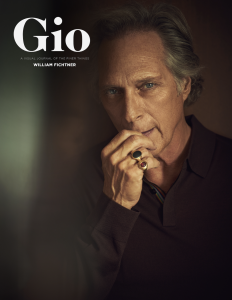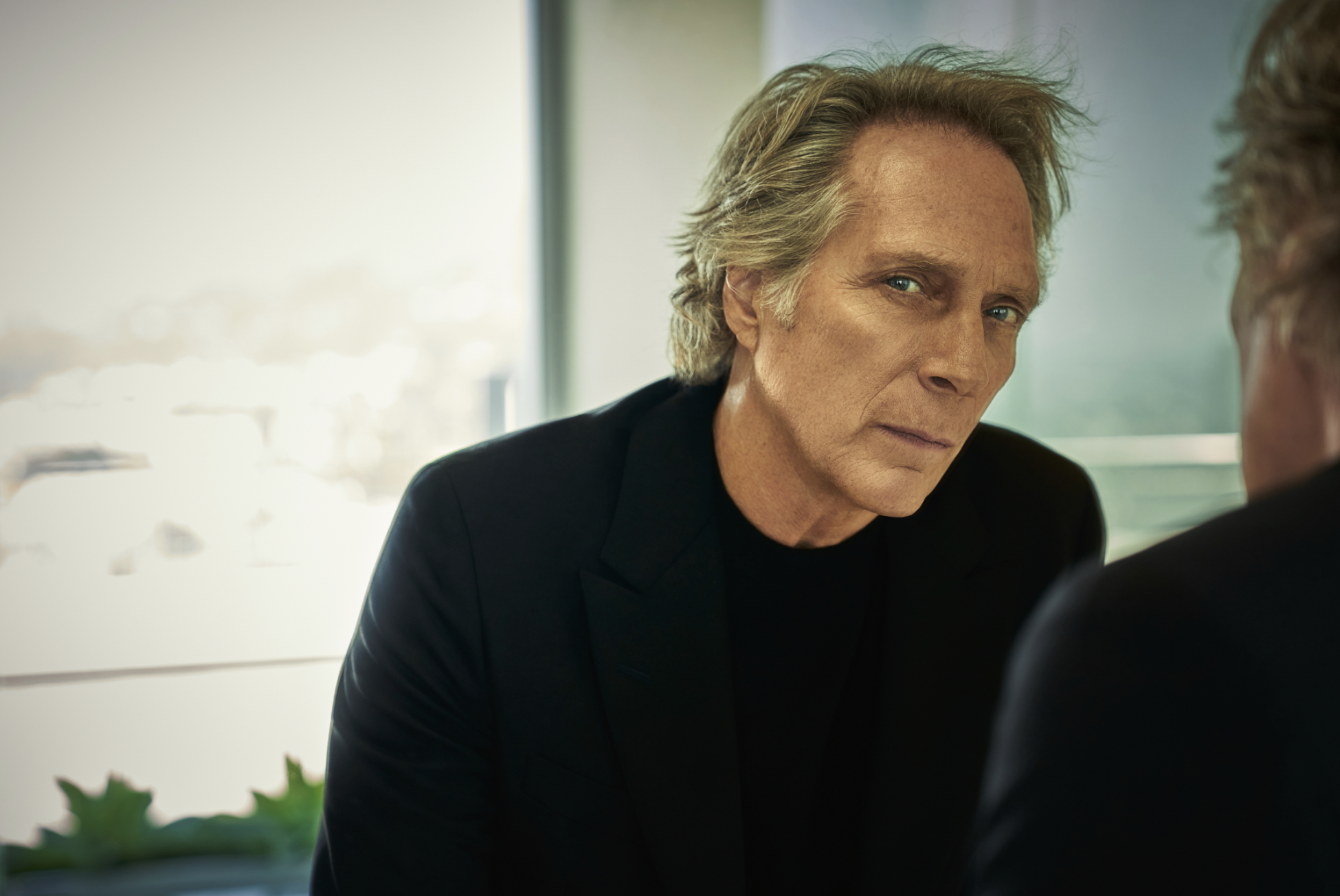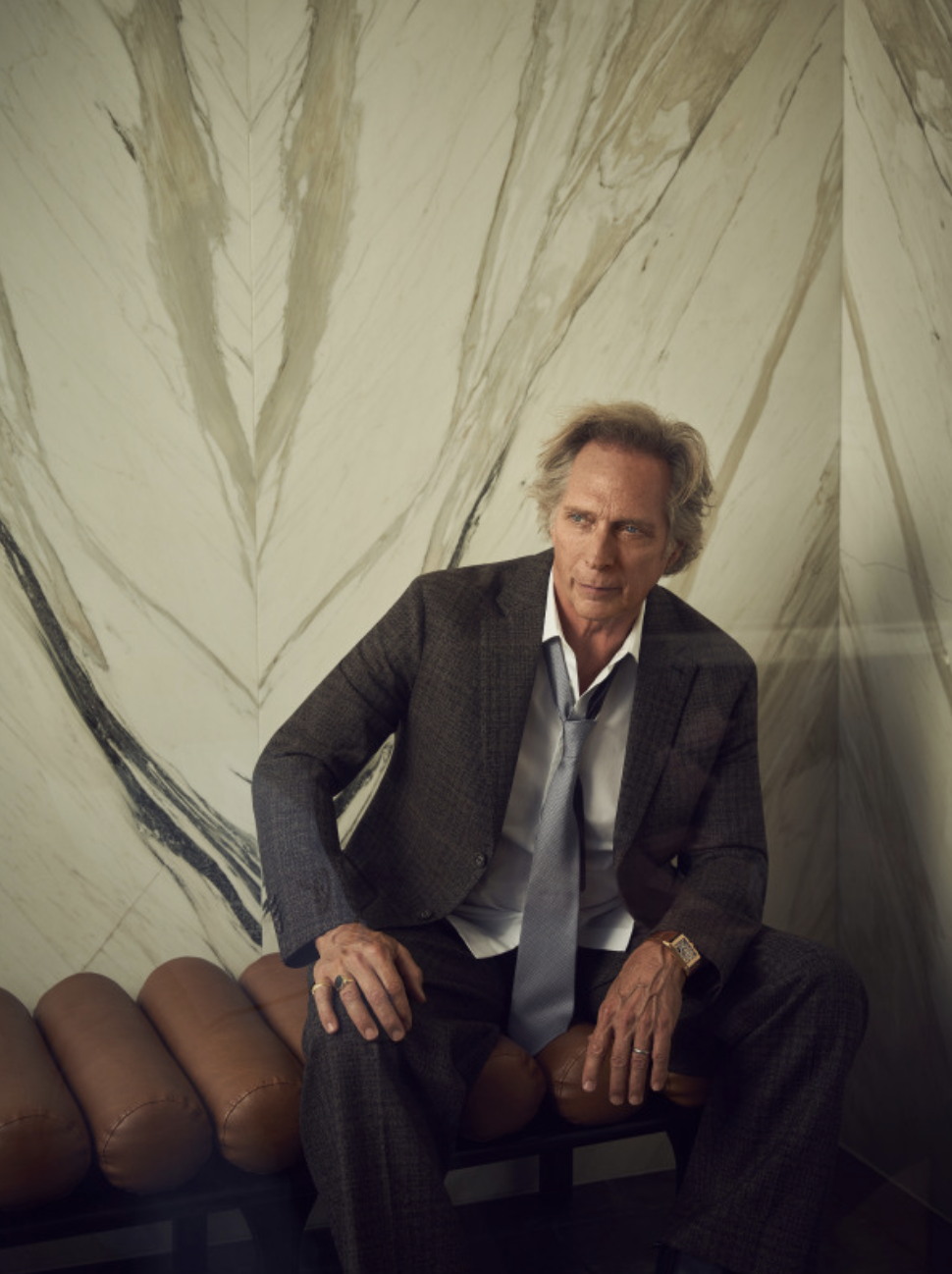W I L L I A M F I C H T N E R

Photographed by: John Russo
Interview: John Russo
Styled by: Chaise Dennis
Grooming: Sonia Lee
Location: Andaz West Hollywood
Video: Ken Waller Media
JR: Your role in Prison Break was iconic. What was it like stepping into that character Alexander Mahone?
WF: Well, let me tell you a story. I moved from New York to LA and when the moving truck showed up to our new house on a Saturday, as you can imagine there were boxes everywhere. Monday morning, in the midst of unpacking, my agent called and said, ‘Alright, I’ve got the first two episodes of this show called Prison Break and I want you to read it. I hope you love it, but you got to tell me by tomorrow, because you have to travel the next day to start working the day after.’ So, of course, the next thing I say is, ‘Who did they lose, calling at the eleventh-and-a-half hour?’ (laughs) I read the first two episodes and looked at my lovely wife Kymmy and she was like, ‘We have so many boxes to unpack, darling, did you like it?’ And I said, ‘Yeah, I kinda did.’ I mean, in the first episode, this character, Alexander Mahone, an FBI agent, is staring at a birdbath while the sun rises in his backyard. Then he’s dressed up in a suit on the job and every time somebody isn’t looking, he’s popping a pill. What actor worth his salt wouldn’t want to find out what that’s all about?
JR: In Armageddon, you played a stoic astronaut with a high intensity ensemble cast. What stands out in your memory about filming that?
WF: Jerry Bruckheimer. I’ve had the pleasure to work with Jerry five times, and when you work on a Jerry Bruckheimer production, you are going to get the best that you can get in every way. It was an awesome experience. I loved working with Bruce Willis. I found him to be incredibly generous to all of us. But I have to say, the most memorable were the locations. And that gets back to Jerry Bruckheimer. We shot at Edwards Air Force Base, where the test pilot school is. We shot at Houston Mission Control. We shot at Cape Canaveral. And I’m not talking about standing back a quarter mile and going, ‘Oh look, there’s the launch pad.’ I’m talking about being on the launch pad, taking the elevator up to the top and literally shooting scenes walking across the gantry to where the space shuttle would be. I also remember looking at one of the crew and asking, ‘Can I borrow your cellphone?’ I took that cellphone, stood off to the side for a second and called my mother and said, ‘Mom, you would not believe where I am.’
JR: You had a memorable part in The Dark Knight. How did you get involved with that project and what was it like on set?
WF: Before The Dark Knight was made, I worked on a film called The Moguls, produced by a friend of mine named Aaron Ryder, who also produced Memento with Chris Nolan. Aaron called me up one day and he said, ‘Listen, my friend Chris Nolan would like to talk to you about a project that he has.’ So, I had a conversation with Chris on the phone — who is such a brilliant filmmaker — and he told me about the role and why he thought I was right for it. He sent me the pages, I looked at them, and I called him back and I said, ‘I’m in.’ As far as what it was like on set, I remember that we rehearsed the scene with Heath Ledger before we shot it. It was just a real quick read through, and when he came on set, he had his hair and makeup done. I am such a fan of actors who go places that are fascinating and new and after spending just a couple of minutes rehearsing with Heath, I thought to myself, ‘Wow, that is really special.’ I love that and I never forgot it, and obviously his performance speaks for itself. Truly amazing.
JR: What kind of roles challenge you the most at this stage in your career?
WF: Everything. Everything challenges you if you want it to challenge you.
JR: Is there a mentor or piece of advice that stuck with you throughout your career?
WF: When I moved to New York and got my first tiny shoebox apartment, I was there probably a year when my mother came to visit me. I was so excited to walk her around and show her where I was studying and where I had a job and just being in New York City. And when she walked into my apartment, she looked around and she said, ‘Well, it looks like there’s only two things that you have any control over: How clean you keep this apartment, and how much you put into what you want to do.’ And isn’t that the truth? You can think about it all you want but how much are you willing to put into what you do? All of that made sense to me. Her words were short, but crystal clear and true. That’s the only thing I had any control over.
JR: What keeps you passionate about acting after all these years?
WF: The desire to find something new, to go somewhere new, to experience something that you haven’t quite experienced before, and to hopefully be better than you ever were before. I mean, I still have a very strong desire to be as good as I can be. Do I feel that I’ve been completely successful in that direction? No. Will I keep trying? Oh, yeah.
JR: What do you wish people knew about the life of a working actor that they might not see from the outside?
WF: I’m not sure that people who aren’t in the business know what really happens behind the scenes for an actor, the time that it takes and the effort that’s put into it. Sometimes it’s a physical journey, sometimes emotional, or maybe it’s just downright funny. I can’t speak for all actors — everyone has his or her own way of working. My process is to read a script, and I might walk in circles in my backyard thinking about it or make up a playlist that I feel is the right groove for this particular character or this particular story, etc. Those are just a couple of examples, but there are many.
JR: Are there any roles or genres that you haven’t explored yet that you would love to?
WF: Oh, it’s almost impossible for me to answer that. There are so many things that I watch and I wonder, ‘Wow, what would it be like to play a role like that or be in a story like that?’ The list goes on.
JR: When you are not working, what brings you the most joy or peace?
WF: Sometimes I will look at my beautiful wife Kymmy and I will ask, ‘What are my best days, darling?’ And she knows the answer and she says, ‘Every day you are with your two boys.’ And she’s right. When the four of us are together, those are my best days. And recently, my older son got married, so now I say, ‘When the five of us are together, those are my best days.’ And that’s all the joy I’ll never need.
JR: In your latest project, Anne Rice’s Talamasca: The Secret Order, you play a mysterious, dark character who is pursuing power. How did this role come about?
WF: Well, outside of seeing the original film, Interview with the Vampire, back in the early 90s, I was not really familiar with the Anne Rice universe, except for this past summer watching the first two seasons of the series Interview with the Vampire. And then, I got a call about a meeting with the creators of this new show called Talamasca. I had a lovely cup of coffee in Eagle Rock, California with the amazing Mark Johnson; Tom Williams, his producing partner; and John Lee Hancock and Mark Lafferty, the two showrunners. They gave me a copy of the first two scripts, and I have said it a million times in my life, but if it’s not on the page, it’s not on the stage. And it was on the page. It’s a combination of many things that makes something exciting, at least for me: Who is involved with it? How is the material? What do you think of the role? Do you feel like you can find that? Talamasca felt like it just had everything, not to mention the fact that it’s a mysterious and supernatural world, and I have never quite gone down that road. Sure glad I did.




